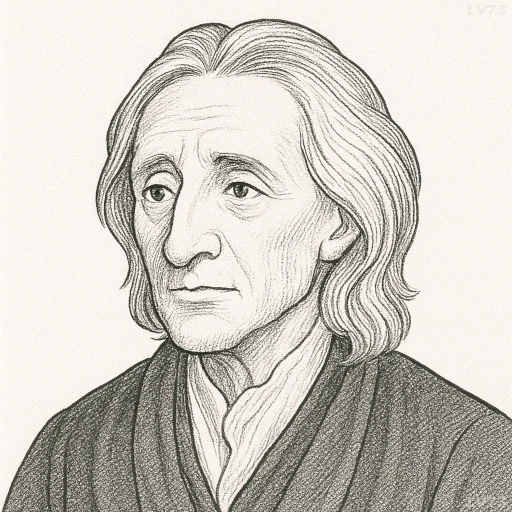“Education begins the gentleman, but reading, good company and reflection must finish him.”

- August 29, 1632 – October 28, 1704
- Born in England (UK)
- Philosopher and political thinker
table of contents
Quote
“Education begins the gentleman, but reading, good company and reflection must finish him.”
Explanation
In this quote, John Locke suggests that education serves as the foundation for becoming a well-rounded individual or a “gentleman.” However, he emphasizes that the development of character and intellect is not completed solely through formal schooling or instruction. Rather, it requires the additional influence of reading, the guidance of good company, and reflection on one’s experiences and actions. For Locke, education provides the initial training, but it is through continued self-education, exposure to wisdom, and personal reflection that an individual truly matures and becomes fully cultivated. This highlights Locke’s belief in the importance of self-directed learning and the idea that personal growth continues throughout life, requiring more than just external instruction.
Locke’s philosophy was deeply rooted in the Enlightenment, an era marked by the rise of reason, individualism, and intellectual exploration. His views on education were revolutionary for his time, advocating for the idea that people could shape their own destinies through the development of knowledge and critical thinking. Locke’s emphasis on the roles of reading and good company suggests that education is not just about formal subjects but also about the experiences and ideas one encounters outside of the classroom. This aligns with his broader belief that knowledge is not innate but must be acquired through continuous learning and interaction with the world.
In modern times, Locke’s view on education remains influential, particularly in the context of lifelong learning. The idea that education is a lifelong process that extends beyond formal schooling is central to contemporary educational philosophies. Reading widely, interacting with a diverse range of people, and engaging in critical self-reflection are still seen as essential for personal growth and maturity. For example, the cultivation of leadership or moral character is often viewed as being shaped not just by formal education but also by experiences, relationships, and the ability to reflect on one’s actions and thoughts. Locke’s quote serves as a reminder that becoming a truly wise and virtuous individual requires ongoing effort and engagement with the world beyond formal education.
Would you like to share your impressions or related stories about this quote in the comments section?



